★★★
“Killer party.”
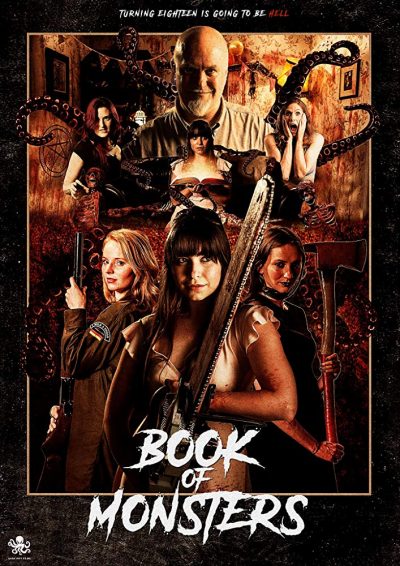 Ten years ago, the mother of eight-year-old Sophie (Craine) was attacked and killed by what her daughter insisted was a monster – a claim to which she held, resulting in her being institutionalized. Now, a somewhat recovered Sophie is about to enjoy her 18th birthday, having organized a party with her friends. But she’s about to discover that the monsters were very real, and just waiting for her to reach adulthood. Fortunately, Mom was a bit of a monster hunter, who conveniently left a book of helpful tips as well as a secret vault of tools and weapons. Together with her pals, Sophie is prepared to make a stand and defend her home against the attackers.
Ten years ago, the mother of eight-year-old Sophie (Craine) was attacked and killed by what her daughter insisted was a monster – a claim to which she held, resulting in her being institutionalized. Now, a somewhat recovered Sophie is about to enjoy her 18th birthday, having organized a party with her friends. But she’s about to discover that the monsters were very real, and just waiting for her to reach adulthood. Fortunately, Mom was a bit of a monster hunter, who conveniently left a book of helpful tips as well as a secret vault of tools and weapons. Together with her pals, Sophie is prepared to make a stand and defend her home against the attackers.
This is, basically, rubbish, assembled on a budget which was clearly woefully short of the needful: the monsters, for example, are little more than blokes in masks. The plot is so hackneyed, it should be pulling a carriage, and the characters are a collection of stereotypes – even if the Goth girl is apparently unable to recognize a pentagram. I’m still unsure whether or not to be annoyed that Sophie’s a lesbian. On the one hand, it has absolutely nothing to do with the plot. On the other… Well, it has absolutely nothing to do with the plot. Yet, I sense that much of this is entirely deliberate. As the sleeve (right) shows, Sparke wanted to make a British version of The Evil Dead 2, complete with a central character who goes from zero to hero.
And, despite all the shortcomings, there’s an energy here which can only be admired and appreciated. It’s very British nature is one of the factors which help skate past the flaws, and it manages simultaneously to be played tongue-in-cheek and dead straight. The fact the lead actress is the world’s least-convincing 17-year-old (I’m not sure how old Craine is, but she graduated university, never mind school, eight years prior to this!), can only be presumed to be part of the joke. Once things start, they don’t stop, and even when the end results are more than a little rough around the edges, you’re still be more inclined to laugh with the film, rather than at it. The demonic worms which turn into killer garden gnomes are a good example of this spirit.
Similarly, despite my qualms about Craine’s credentials as a teenager, she is by no means bad in the role, and has a nicely-developed character arc. Initially, she’s still damaged by the experiences of a decade previously, yet has largely put that behind her. When everything she thought was her imagination, turns out merely to be an appetizer, you can see her internal steel buckle, yet not give way. By the end, she’s kicking arse and wielding that chainsaw as if to the manner born – which, I guess, she was. For a budget of about £60 grand, Craine and his team undeniably do more than a little. Now, someone give them $5 million and let him remake his own film with the budget it needs.
Dir: Stewart Sparke
Star: Lyndsey Craine, Michaela Longden, Lizzie Aaryn-Stanton, Daniel Thrace





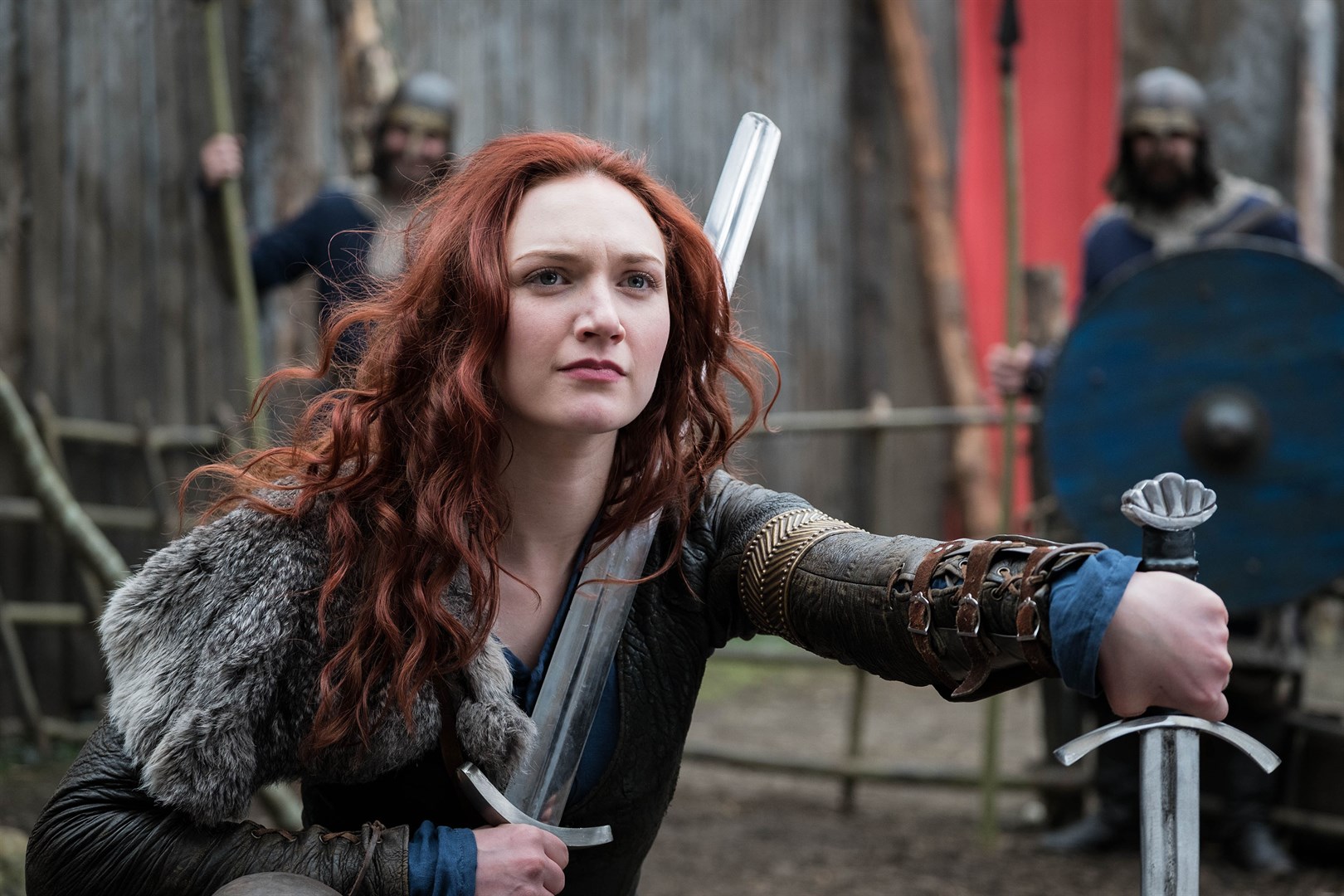 ★★★
★★★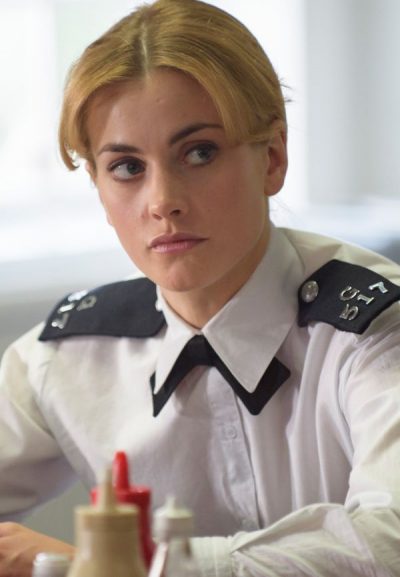 Origin stories are all the rage, it appears. Though it’s probably just coincidence we watched this prequel to
Origin stories are all the rage, it appears. Though it’s probably just coincidence we watched this prequel to 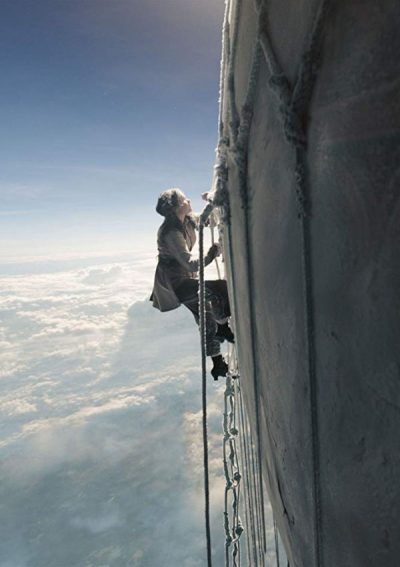 I was genuinely stoked when I got to the end of this one, which details the derring-do of 19th-century pioneers James Glaisher (Redmayne) and Amelia Wren (Jones). The former is a scientist in the fledgling field of meteorology, who wants to obtain data from the upper atmosphere. The latter is a balloon pilot, carrying on despite the death of her husband on a previous flight. Together, they team up, to fly higher than any person had ever gone before. Indeed, further than even they wanted to go, as a frozen valve prevents them from descending when they need to do so. With Glaisher out of commission through oxygen deprivation, it’s up to Wren to climb, by herself, up the outside of the balloon, in order to reach the top and clear the valve.
I was genuinely stoked when I got to the end of this one, which details the derring-do of 19th-century pioneers James Glaisher (Redmayne) and Amelia Wren (Jones). The former is a scientist in the fledgling field of meteorology, who wants to obtain data from the upper atmosphere. The latter is a balloon pilot, carrying on despite the death of her husband on a previous flight. Together, they team up, to fly higher than any person had ever gone before. Indeed, further than even they wanted to go, as a frozen valve prevents them from descending when they need to do so. With Glaisher out of commission through oxygen deprivation, it’s up to Wren to climb, by herself, up the outside of the balloon, in order to reach the top and clear the valve.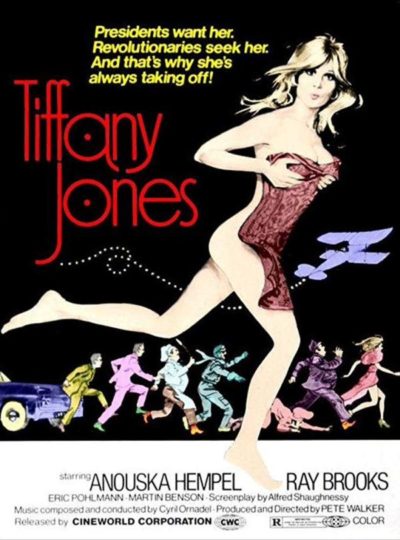 Fashion model Tiffany Jones (Hempel) finds herself dropped into the middle of international intrigue, after President Boris Jabal (Pohlmann), leader of the Eastern European state of Zirdana, takes a shine to her during a state visit to Britain. It’s supposed to be a trade negotiation, but is really to allow Jabal to broken an arms deal with some shady Americans. Her meeting the President brings her to the attention of two factions of Zirdanian rebels.
Fashion model Tiffany Jones (Hempel) finds herself dropped into the middle of international intrigue, after President Boris Jabal (Pohlmann), leader of the Eastern European state of Zirdana, takes a shine to her during a state visit to Britain. It’s supposed to be a trade negotiation, but is really to allow Jabal to broken an arms deal with some shady Americans. Her meeting the President brings her to the attention of two factions of Zirdanian rebels.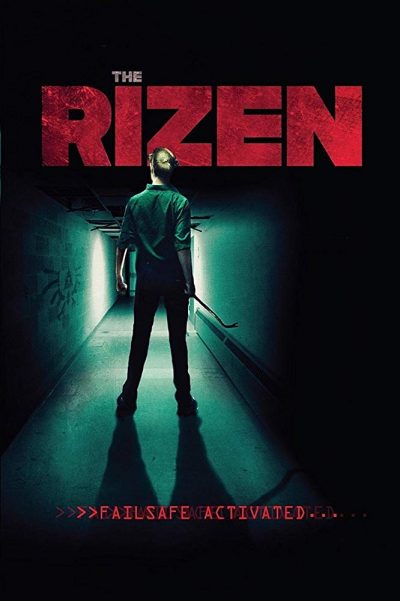 This is about the third Lovecraftian film I’ve seen with a heroine in the past year or so, after
This is about the third Lovecraftian film I’ve seen with a heroine in the past year or so, after 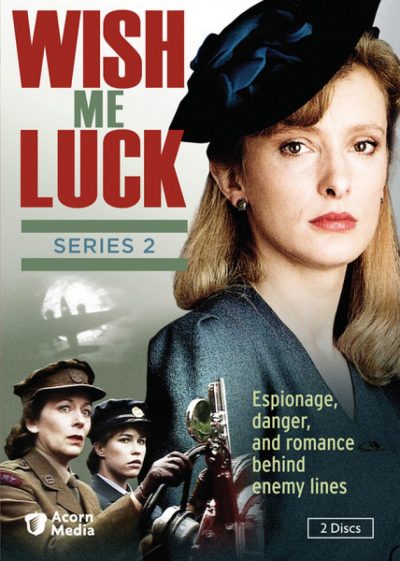 This British TV series ran for three series from 1988 through 1990, with 23 episodes (each an hour long including commercials) in total. The same creators had previously been responsible for another WW2-based show, Tenko, about women in a Japanese prisoner-of-war camp after the fall of Singapore. The time period here is similar – the second half of World War 2 – but the focus moves from the Far East to Occupied Europe, in particular, France. At this point, the Allies were sending in agents to assist the local Resistance – and as
This British TV series ran for three series from 1988 through 1990, with 23 episodes (each an hour long including commercials) in total. The same creators had previously been responsible for another WW2-based show, Tenko, about women in a Japanese prisoner-of-war camp after the fall of Singapore. The time period here is similar – the second half of World War 2 – but the focus moves from the Far East to Occupied Europe, in particular, France. At this point, the Allies were sending in agents to assist the local Resistance – and as 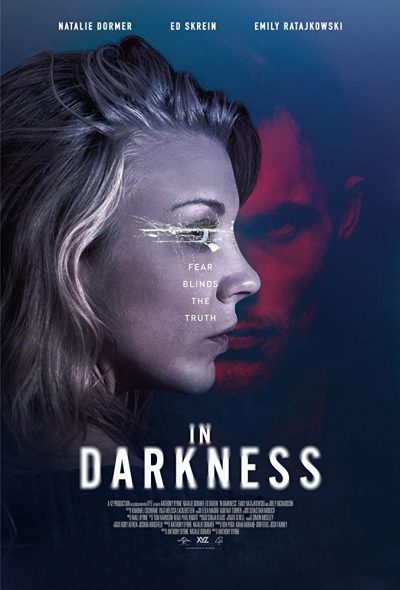 I literally had to check at the end of this, to see if M. Night Shyamalan had been involved. Because rarely since the likes of Signs – or, worse still, The Village – has a final twist so completely derailed a movie. As soon as it happened here, I was immediately listing off the scenes previously which now made absolutely no sense at all. While it’s hard to provide more information without massive spoilerage, it turned a film which was doing not badly, into one which is a poster-child for poorly-conceived ideas.
I literally had to check at the end of this, to see if M. Night Shyamalan had been involved. Because rarely since the likes of Signs – or, worse still, The Village – has a final twist so completely derailed a movie. As soon as it happened here, I was immediately listing off the scenes previously which now made absolutely no sense at all. While it’s hard to provide more information without massive spoilerage, it turned a film which was doing not badly, into one which is a poster-child for poorly-conceived ideas.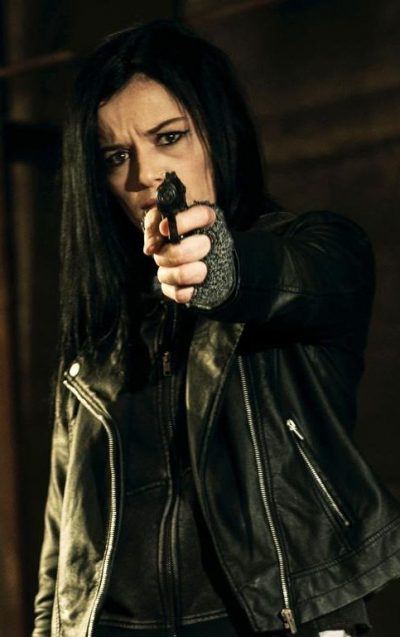 This wasn’t quite what we expected. In fact, replace “quite” with “at all”. It starts off as looking like some kind of revenge porn, with pathologist Margaret Powers (Tyson) kidnapping Finnbar (Ward), the man she’s certain murdered her son. Finnbar was apparently able to get away with it, because he was the son of a notorious local criminal, Tommy O’Neil (Hayman). She wants Finnbar to confess to his crime, and recruits her son’s ex-girlfriend, Zoe (Jarvis) to help in getting her vengeance. Initially, the capture goes well, with the two women then holing up in an abandoned warehouse by the docks, to begin the interrogation. However, this is where the film starts to diverge from the expected, as it turns out Zoe’s intentions are not in line with Margaret’s, as they initially appeared.
This wasn’t quite what we expected. In fact, replace “quite” with “at all”. It starts off as looking like some kind of revenge porn, with pathologist Margaret Powers (Tyson) kidnapping Finnbar (Ward), the man she’s certain murdered her son. Finnbar was apparently able to get away with it, because he was the son of a notorious local criminal, Tommy O’Neil (Hayman). She wants Finnbar to confess to his crime, and recruits her son’s ex-girlfriend, Zoe (Jarvis) to help in getting her vengeance. Initially, the capture goes well, with the two women then holing up in an abandoned warehouse by the docks, to begin the interrogation. However, this is where the film starts to diverge from the expected, as it turns out Zoe’s intentions are not in line with Margaret’s, as they initially appeared.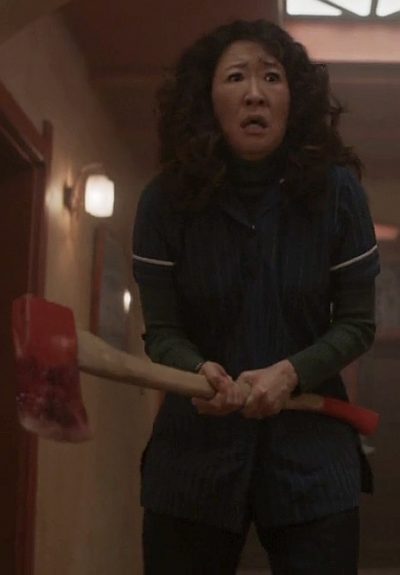 [Warning: this piece will contain significant spoilers for the show. READ ON AT YOUR OWN RISK!] It was always going to be difficult, if not impossible, for the second series of Killing Eve to match the brilliance of the first. That had ended with mousy MI-5 desk jockey Eve (Oh) stabbing ruthless assassin Villanelle (Connor), as they lay on a bed – platonically, but you could cut the sexual tension with a knife. Where would things go from there? The answer, unfortunately, is nowhere particularly much, except for some thoroughly unconvincing plot twists, such as Villanelle going to work for MI-5. Hello? Did everyone forget her cold-blooded murders of agents Bill Pargrave and Frank Haleton in season one? Let’s just pretend she’s one of us, and send her off on a mission without so much as a background check, m’kay?
[Warning: this piece will contain significant spoilers for the show. READ ON AT YOUR OWN RISK!] It was always going to be difficult, if not impossible, for the second series of Killing Eve to match the brilliance of the first. That had ended with mousy MI-5 desk jockey Eve (Oh) stabbing ruthless assassin Villanelle (Connor), as they lay on a bed – platonically, but you could cut the sexual tension with a knife. Where would things go from there? The answer, unfortunately, is nowhere particularly much, except for some thoroughly unconvincing plot twists, such as Villanelle going to work for MI-5. Hello? Did everyone forget her cold-blooded murders of agents Bill Pargrave and Frank Haleton in season one? Let’s just pretend she’s one of us, and send her off on a mission without so much as a background check, m’kay?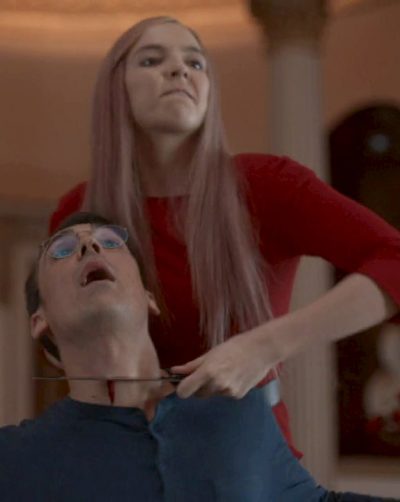 After becoming an under-the-radar hit the first time, the second set of episodes seems to have left a lot of people unsatisfied, for a variety of reason. And the ratings reflect this. Having managed the almost unprecedented feat of increasing almost every week the first time round, this season saw fewer viewers for every part after the debut, than the equivalent in series one. Maybe renewing it the day after that opening episode was a mistake? The final scene of this series ends in a mirror image of its predecessor, Villanelle shooting Eve in a fit of pique after she responds to Villanelle’s declaration of love with “You don’t know what that is,” and walks away. Of course, the renewal and critical acclaim basically make it certain Eve isn’t dead. So it’s less a case of “What will happen?”, than “What cheat will the writers use to get out of the corner into which they’ve painted themselves?” I’m going with a bullet-proof vest.
After becoming an under-the-radar hit the first time, the second set of episodes seems to have left a lot of people unsatisfied, for a variety of reason. And the ratings reflect this. Having managed the almost unprecedented feat of increasing almost every week the first time round, this season saw fewer viewers for every part after the debut, than the equivalent in series one. Maybe renewing it the day after that opening episode was a mistake? The final scene of this series ends in a mirror image of its predecessor, Villanelle shooting Eve in a fit of pique after she responds to Villanelle’s declaration of love with “You don’t know what that is,” and walks away. Of course, the renewal and critical acclaim basically make it certain Eve isn’t dead. So it’s less a case of “What will happen?”, than “What cheat will the writers use to get out of the corner into which they’ve painted themselves?” I’m going with a bullet-proof vest.